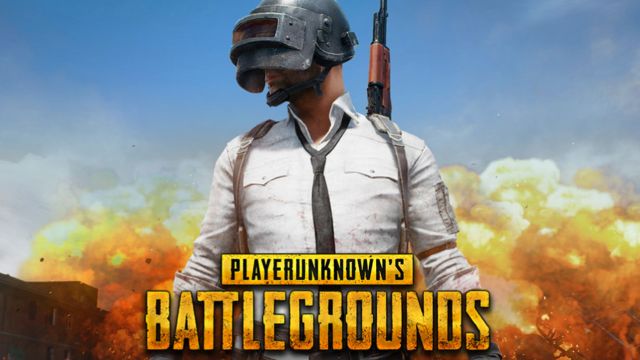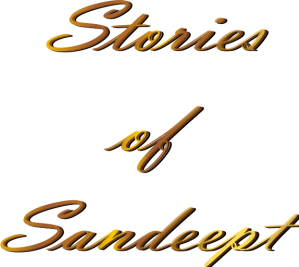PUBG: “The original Battle Royale game”

My best friend Anish introduced me to PUBG. The concept was simple. Maximum of 100 players dropped into an island fighting each other and the winner was the last one standing. It looked interesting but my phone could not meet its specifications. A couple of months later, Ashok (my friend from college) discovered an emulator for desktop. At least a dozen of us downloaded the emulator and the game. When the game downloaded, it said: “The original Battle Royale game is now installed on your device.”
The term “Battle Royale” intrigued me. I had seen the term before in Wikipedia when I read about the game but I had somehow skipped it. That time, I guess I only wanted to know why the game was popular. I did not give it another thought. While playing the game (and after going through a lot of “funny moments”, which were not so funny), a thought came into my mind, What if I could write a novel based on the game?
That’s why I looked if there was a novel like that. And (unfortunately for my creativity) I found the Japanese movie. Curious, I went through the Wikipedia, movie was actually inspired by a Japanese novel.
Battle Royale: The Movie (2000)

The Kinji Fukasaku movie destroyed my PUBG experience. It was unlike any of the games I had played. It felt scary, tumultuous, and even childish at times, but mostly it felt nauseous. I mean, who would be in a right state of mind when you are forced to kill your friends in an island. Crazy situation dictates crazy measures but the madness of the fifteen-year-olds disturbed me.
The movie, in my opinion, is not the best in terms of execution but the idea itself felt great. What would happen if 42 students are forced to kill each other in an island by the government? The question hooked me till the end. The outcome of the movie was not unexpected. I actually knew who were going to survive but still I hoped Kawada survived. The end of Kitano (former teacher and BR Programme Supervisor) too felt comical and I thought it could have been better.
Battle Royale: The Novel (1997)

Koshun Takami, the author of the novel sent the book for a horror competition in 1996. The horror of being killed by your own friend is inexplicable but the book is more like dystopian adventure. The dispute of genre probably helped the book. Takami’s book became a best-seller and controversial because of its violence. It was banned in several countries. Even the Diet (Japanese legislature) was interested. Then later, it was made into a movie. I felt so excited when I read this history.
And I (wrongly) thought the movie was dark! The novel is even darker. It’s been inspired from the Pro Wrestling Battle Royale as described in the “Introduction” section. (You must have noticed a real long list of inspirations by now.) “I feel like puking,” Shuya Nanahara and Shogo Kawada say often in the book. That’s what I felt. Yes, the novel is even more nauseous than the book.
The book explains the motive behind the initiation of the Battle Royale Programme aka the Programme clearly than that in the movie. It goes in length inside the minds of each character to give the reader complete information about them. This scheme is great mostly and feels boring at times, but I love Takami for taking the risk. The end of the Programme Supervisor Kinapatsu Sakamochi is not comical but I did not feel the satisfaction. I wanted Nanahara to kill him instead of Kawada. Kawada did have personal issue with the government and Sakamochi is a government official but Nahahara had a personal vendetta against him. Sakamochi had raped his caretaker Anno and had killed his brotherly best friend, Yoshitoki Kuninobu.
Differences
Both the Battle Royale novel and the movie have the same basic premise: 42 students forced to kill each other by the government. However, the novel is about the revolt against atrocious Fascist government, while the movie is about the adult-teenagers (teacher-student) relationship. The attack on Kitano in the beginning and then his love for the disciplined Noriko (despite being the Program Supervisor) emphasize this. The movie also might have been made in a lighter tone to make it approvable for 15+.
The book is not just about the teenagers and the adults. It is about the system that has been economically successful but does not tolerate protest. Any protester is a threat to the government who is removed immediately. The Programme is about creating mistrust among people, to keep them divided and to rule upon them. It is a story of how three students deceive the government by trusting each other—an act that was totally unexpected in the state of chaos. Government is the villain in the book. Kinpatsu Sakamochi is only a scratch in a very long and webbed list of villains.
PUBG, on the other hand is a sort of distraction to the youth. A way to let out your frustration so that you can start something anew in an efficient manner. (I am reminded of Fight Club, which I watched today.) The game is addictive and I love the way it has been executed. However, in some years I feel it is going to fade away. I don’t know why. I just feel it. (Let’s say like Kawada’s sixth sense in the novel.)
To conclude this review…
I found the book and the movie influential, though the movie has a lot of issues. (Stephen King and Quentin Tarantino haven’t praised them just to make them popular.) Battle Royale also inspired gaming franchises, which will keep on increasing the popularity of both the book and the movie.
I still have a lot of things to say about Battle Royale—book and the movie, as well as some of the individual characters. I won’t include all of them here. I will come up with more essays on this topic. (That’s a sort of influence, isn’t it?)


Yuck! If I were one of the forty-two, I would quickly line up to be first to go. Eternity would be far better. 😀 I have been missing your visits. I’ve been over a few times but your post was not in English – too bad for me. I know there is a way to change language but I couldn’t find it. Thanks for the game/movie/book review.
LikeLike
I have come second in the game twice, never won 😀
In real life, I too think I can’t survive for much longer. The game is too frustrating.
Well, semester hit me hard. I barely managed time to write and on those occasions I chose to write in my mother tongue (it flowed better). Now there is a break (about 10 days). I had planned to continue on a novel but I got stuck. I had finished reading Battle Royale during my exams (completely out of syllabus). So, it’s fresh and there is so much to learn from it. I’ll be writing a few more posts on it.
Thank you for stopping by Oneta! It’s such a pleasure to read your comments and your posts!
LikeLike
Pingback: A review of the Year 2075 – Stories of Sandeept